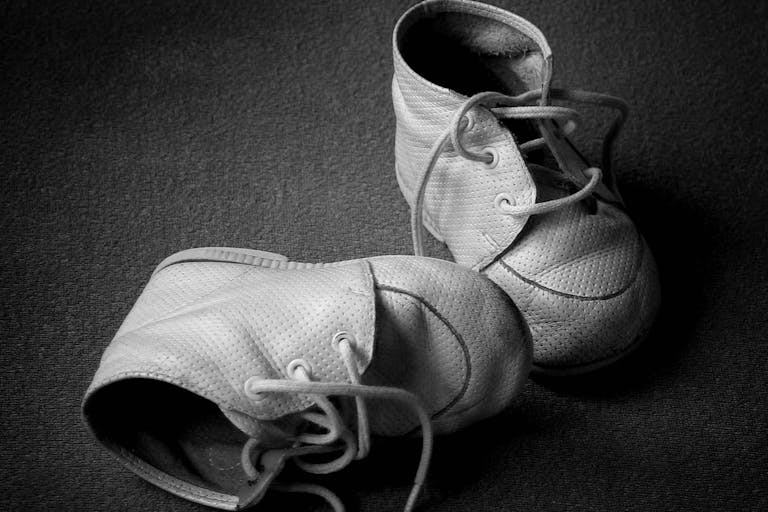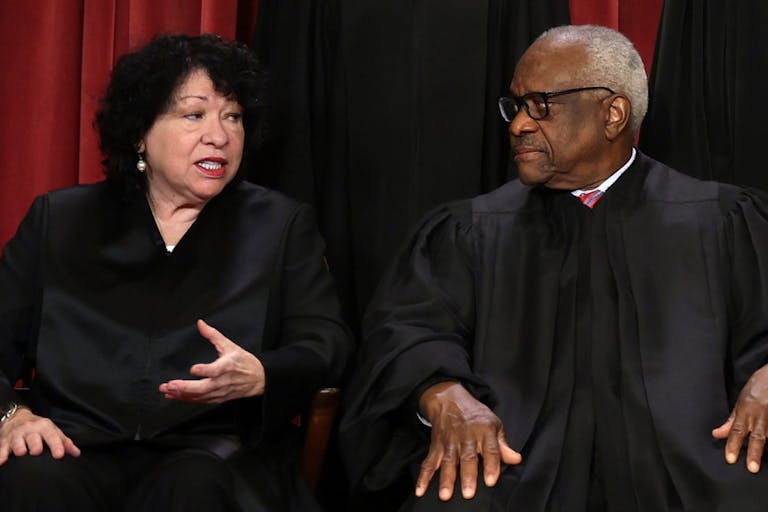
STAGGERING: Abortion killed 10M more humans in 2025 than all other causes
Carole Novielli
·
Justice Sotomayor said she felt ‘sense of despair’ at end of term that overturned Roe
During a video speech to hundreds of law professors at the Association of American Law Schools annual meeting in San Diego last week, Supreme Court Justice Sonia Sotomayor said she felt a “sense of despair” at the direction the court took in its most recent term, which ended in June.
“I did have a sense of despair about the direction my court was going,” she said. She also said she was “shell-shocked” and “deeply sad” at the end of the term.
Though she did not mention it by name, it was on June 24, 2022, that the Supreme Court issued its ruling in Dobbs v. Jackson Women’s Health Organization, overturning the decision of Roe v. Wade, which had forced legalized abortion upon every state. The court ruled 6-3 to uphold the Mississippi Gestational Age Act, which protected preborn children after 15 weeks from abortion. It also voted 5-4 to overturn both Roe v. Wade and the 1991 decision in Casey v. Planned Parenthood. That decision allowed states to pass laws protecting preborn children from abortion at any point in pregnancy, not only after the arbitrary age of “viability” as Roe had stated. Justice Sotomayor dissented.
Warning: Disturbing image below.
Along with Justices Stephen Breyer and Elena Kagan, Sotomayor wrote, “Yesterday, the Constitution guaranteed that a woman confronted with an unplanned pregnancy could (within reasonable limits) make her own decision about whether to bear a child, with all the life-transforming consequences that act involves. And in thus safeguarding each woman’s reproductive freedom, the Constitution also protected ‘[t]he ability of women to participate equally in [this Nation’s] economic and social life.’ [Casey]. But no longer. As of today, this Court holds, a State can always force a woman to give birth, prohibiting even the earliest abortions.”
Such a statement implies that there are certain “reasonable” times to violently kill an innocent human being based on incidental factors. The image below does not represent a “reasonable” act against a human being. Roe v. Wade allowed the killing of this child at 21 weeks and prevented states from restricting abortion at all through 24 weeks. To say this is “reasonable” is to say that there are certain human beings who do not deserve to be protected — a discriminatory statement that denies the humanity of preborn children.
In addition, birth occurs naturally as the end result of pregnancy; it is not “forced.” An induced abortion, however, is forced — halting a pregnancy that would otherwise likely continue its natural progression until birth (its natural end).

The dissent opinion also implied that mothers are incapable of participating “equally in [this Nation’s] economic and social life.” Such a statement denies the value of women and motherhood and implies that successful mothers cannot have successful careers.
Just as states can require parents to take care of their born children or face charges of neglect and abuse, they may now also be able to require parents to refrain from killing their children prior to birth.

Live Action News is pro-life news and commentary from a pro-life perspective.
Contact editor@liveaction.org for questions, corrections, or if you are seeking permission to reprint any Live Action News content.
Guest Articles: To submit a guest article to Live Action News, email editor@liveaction.org with an attached Word document of 800-1000 words. Please also attach any photos relevant to your submission if applicable. If your submission is accepted for publication, you will be notified within three weeks. Guest articles are not compensated (see our Open License Agreement). Thank you for your interest in Live Action News!

Carole Novielli
·
International
Cassy Cooke
·
Abortion Pill Reversal
Bridget Sielicki
·
Human Interest
Bridget Sielicki
·
International
Angeline Tan
·
Politics
Cassy Cooke
·
Analysis
Nancy Flanders
·
International
Nancy Flanders
·
Politics
Nancy Flanders
·
Pop Culture
Nancy Flanders
·
Politics
Nancy Flanders
·